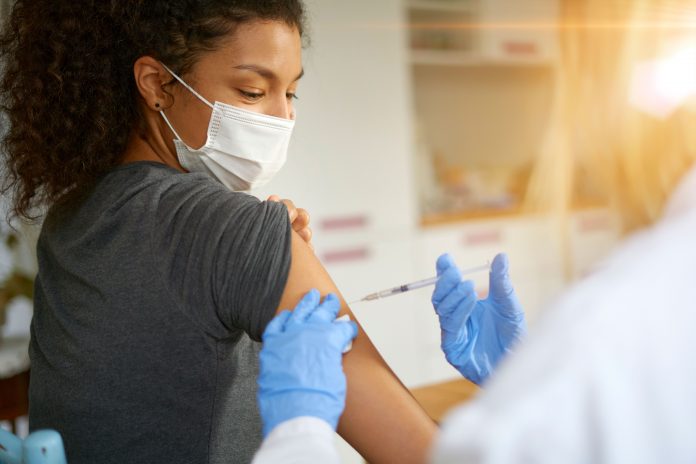
Immunity from COVID-19 appears to increase over time between vaccination and infection, and vice versa, a new laboratory study from researchers at Oregon Health & Science University (OHSU) suggests.
“Longer intervals between natural infection and vaccination appear to strengthen immune response for otherwise healthy people,” said co-senior author Fikadu Tafesse, PhD, associate professor of molecular microbiology and immunology in the OHSU School of Medicine.
The study, published January 26 in the Journal for Clinical Investigation: Insight, came just as an advisory panel for the Food and Drug Administration met to consider the nation’s COVID-19 vaccine strategy. The panel voted to standardize the primary vaccine and boosters—going forward, all COVID-19 vaccines will target currently circulating strains. But work on vaccines is taking place on many fronts.
This team’s findings suggest that vaccine boosters should be spaced no more frequently than a year apart, at least among healthy people.
They measured the quality and quantity of the antibody response in blood samples for 96 generally healthy OHSU employees. These subjects gained hybrid immunity through two means: either vaccination followed by a breakthrough infection, or by getting vaccinated after contracting COVID-19. They found that the immune response was uniformly stronger the longer the time period between vaccination and infection. The longest interval measured was 404 days.
“The immune system is learning,” said Marcel Curlin, study co-author and associate professor of medicine in the OHSU School of Medicine and medical director of Occupational Health there. “If you’re going to amplify a response, what this study tells us is that you might want to boost that response after a longer period of learning rather than early after exposure.”
The research team found that it didn’t matter whether someone developed hybrid immunity by getting vaccinated after contracting COVID-19 or after a breakthrough infection following vaccination. Both groups developed an equally potent immune response.
Their findings suggest long-lasting potency of so-called “memory cells,” the B cells that recognize an invading virus and generate protein antibodies to neutralize the virus and its many variants. The authors write that an ever-growing pool of people who have contracted the SARS-CoV-2 virus stand to benefit from vaccination, even if they’ve delayed it until now.
Relying on natural infection alone is a bad idea, “given the risks of severe illness, long-term complications, and death,” the authors write.
The researchers say the findings are the latest to point toward the virus evolving to an endemic state.
“Our results point to a future where inevitable vaccine breakthrough infections would be expected to help build a reservoir of population-level immunity that can help blunt future waves and reduce the opportunity for further viral evolution,” they write.
The researchers cautioned that the immune response was measured in relatively healthy people, and boosters may be advisable on a more frequent basis among vulnerable people who are older or are immunocompromised.













